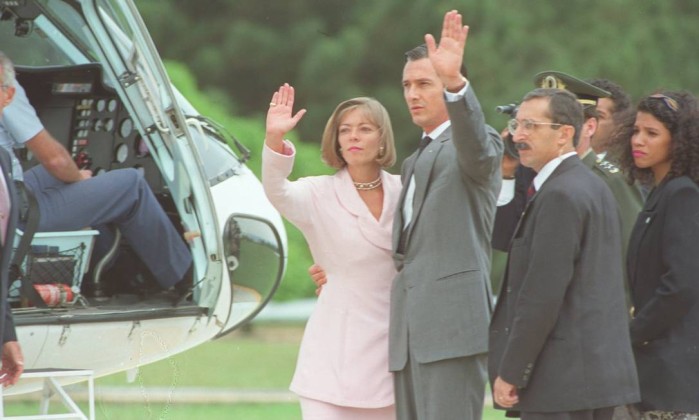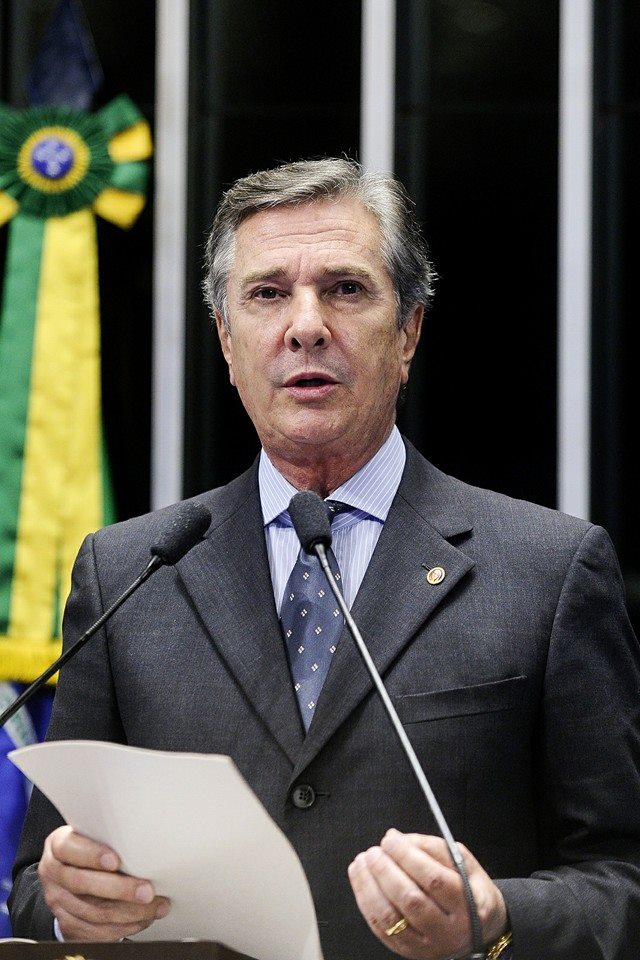
As Brazil’s congress votes on president Dilma Rousseff’s impeachment today, it’s not the first time that the Câmara dos Deputados (Chamber of Deputies) will consider a president’s impeachment.![]()
It’s not even the first impeachment since the return of civilian, democratic rule in the 1980s.
Before Rousseff, there was Fernando Collor de Mello, who was impeached nearly a quarter-century ago, and who resigned a day before a formal vote to remove him from office.
Commentators ruefully said during Collor’s impeachment crisis that the process showed Brazil’s institutions, from its media to its judiciary, were robust enough to stop impunity in a newly democratic Brazil, even when corruption went all the way to the presidential palace.
But as Operation Car Wash wreaks havoc on the entire spectrum of Brazilian politics, and commentators are saying the same thing today, the corruption within the Collor administration now seems quaint compared to the current scandal, which involves massive kickbacks from Petróleo Brasileiro SA, the state oil company, to hundreds of politicians within many Brazilian parties.
If anything, the lessons of the Collor impeachment viewed in the context of the current Petrobras scandal — informally nicknamed , ‘petrolão’ (the ‘big oily’) — show just how tenacious the roots of corruption are in Brazil, as much today as 20 or 30 years ago.
A young new hope for Brazil turns sour
Back in 1989, the country’s voters delighted in the opportunity to choose their president at the ballot box for just the second time since the end of military rule. But those same Brazilians were angry at the outgoing president, José Sarney, for massive inflation and economic turbulence. The transition to democracy coincided with a difficult debt crisis and inflation spike throughout much of South America.
Collor, like so many of Brazil’s political leaders, was himself the scion of a political family, his father a governor of the northeastern state of Alagoas. Flush with political connections, family wealth and control of the local media, Collor’s own political rise was easy, and he too became governor of Alagoas in 1986.
In the economic chaos of the final years of Sarney’s administration, Collor saw his opening. Youthful and populist, Collor charmed the media and, eventually, voters, as a champion of progressive reforms and the fight against Brazil’s seemingly endemic corruption. Facing Luiz Inácio Lula da Silva in a runoff, Collor mercilessly attacked Lula da Silva as a hard-left figure who would expropriate and nationalize Brazil’s economy, destroying what little wealth that the Brazilian middle class still maintained. Implicitly, Collor also hinted that a Lula victory could destabilize Brazil’s nascent democracy by inviting a return to military rule.
Collor easily led the first round vote, and he defeated Lula by a margin of 53.0% to 47.0% in the runoff. (Lula would go on to lose two more presidential elections until voters generated enough trust to hand him a victory on his fourth try in 2002 — of course, he and Rousseff have dominated Brazilian politics and policymaking ever since).
What Brazilian voters missed was that Collor himself personified the kind of local and regional oligarchy that had long been part of Brazil’s corruption problem. Alagoas, for example, slowly stagnated in the last half of the 20th century, depending far too long on agriculture and its most important export, sugar. Even today, it ranks at the bottom of Brazil’s states for income and development, though its leaders hope that tourism and related services can rejuvenate the state economy.
When he took office in March 1990, however, Collor was the toast of an entire country. Just 41 years old, Collor cut a dashing figure and a remarkable contrast with the military generals of the 1960s and 1970s and old men like Sarney, entrusted with restoring democracy on the basis of their experience in 1950s politics.
Once in power, Collor found that ending inflation was a lot harder than charming the Brazilian electorate.
It didn’t take long for Collor’s star to fade.
In an attempt to halt inflation, he immediate froze savings accounts and converted other bank accounts into savings bonds. Popular at first, and initially successful at bringing inflation under control in 1990 and 1991, the ‘Plan Collor’ didn’t prevent the return of hyperinflation in 1992 nor the accompanying economic downturn.
Nevertheless, Collor’s radical economic program started tearing down the country’s longstanding protectionism by lowering tariffs and promoting global trade — a step that, in retrospect, has boosted Brazilian exports for decades. Collor also promoted budget discipline and privatized several public-sector behemoths, paving the way to continue such liberal reforms under Fernando Henrique Cardoso, Brazil’s center-right president between 1995 and 2003.
A 50 million-dollar campaign slush fund
In the meanwhile, Collor’s administration was getting a reputation for the kinds of cronyism and corruption that Collor, as a candidate, railed against.
It was Collor’s own brother, Pedro Collor, who blew the whistle on the scandal that would eventually result in Brazil’s first impeachment trial.
Collor’s campaign treasurer Paulo César Farias collected over $50 million in excess campaign contributions in 1989, which were then diverted for Farias’s own businesses, socked away in foreign bank accounts on Collor’s behalf or used, in one instance, to purchase real estate in Paris. The Collor campaign slush fund, as it turns out, was just an audacious preview of a web of corruption, kickbacks and bribes that Farias began spinning from the first days of the Collor administration. (After Collor’s impeachment, Farias fled to Thailand; after his capture, imprisonment and release from prison, Farias was gunned down in 1996 in what police described as a sordid lover’s quarrel, though no one really knows exactly what happened).
The allegations of the Collor campaign irregularities emerged in May 1992. Collor’s fall was swift. By September 1992, Brazil’s Chamber of Deputies voted overwhelmingly, by a margin of 441 to 38, to impeach him. Brazil’s Senado (Senate) soon suspended Collor from office for a 180-day period, pursuant to the impeachment process provided in Brazil’s constitution.
Facing his inevitable removal, Collor resigned on December 29. One day later, 76 of Brazil’s 81 senators formally voted that Collor was guilty of the impeachment charges.
Collor’s rehabilition as a pro-Lula senator

The story doesn’t entirely end there and, in many ways, Collor’s post-impeachment career speaks volumes about the impunity of Brazil’s political class.
Banned from holding political office through the year 2000, a court later acquitted Collor of any criminal liability for the crimes that led to his impeachment and removal.
That didn’t stop Collor from plotting his political comeback. Thwarted in his efforts to become the mayor of São Paulo in 2000 due to the eight-year disqualification from political office, Collor lost a bid to return as Alagoas’s governor in 2002. He had better luck four years later, when he won election to the Senate from the state in 2006 as a member of the center-right Partido Trabalhista Brasileiro (PTB, Brazilian Labour Party).
Today, Collor is an outspoken senator and, throughout his career, he has (however ironically) been one of the staunchest supporters of Lula, Rousseff and their party, the Partido dos Trabalhadores (PT, Workers’ Party).
If the Chamber votes today to impeach Rousseff, Collor, the first Brazilian president to be impeached, will be one of the 81 votes who will ultimately decide whether to remove Rousseff, the second Brazilian president to be impeached.
So far, Collor has steadfastly opposed Rousseff’s impeachment.
Not surprisingly, perhaps, Collor is also one of the hundreds of politicians under investigation for taking kickbacks from Petrobras. Prosecutors charged him with corruption last August, receiving up to $7.5 million in bribes. Days after police impounded three luxury cars from Collor’s home (including a Porsche, a Ferrari and a Lamborghini), Collor maintained his innocence.